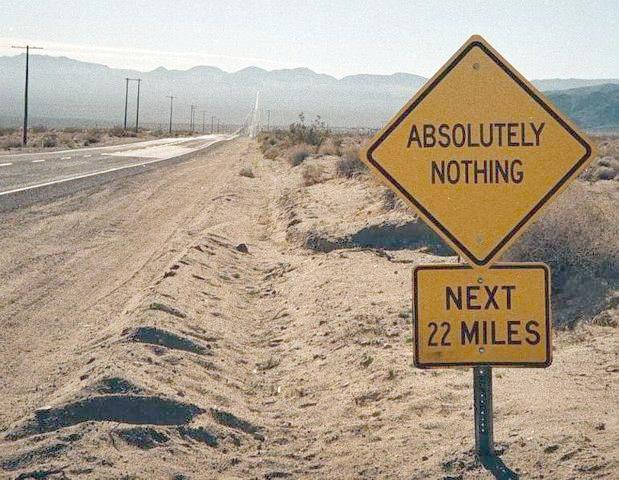There's something called "the Nothing." There's something called "Nothingness." They are (are not, perhaps) a concern to certain philosophers of a certain kind. Apropos of nothing, Cicero once said (I paraphrase) that there is nothing so absurd that some philosopher has not already said it.
"Nothingness" I suppose represents the state of being nothing, or perhaps is characteristic of nothing, or is the quality of nothing or is characteristic of "the nothing." Nothing is, apparently, the opposite of Being, or its negation. I may be mistaken though. I know nothing of the Nothing.
Heidegger the Great and Powerful wrote of the Nothing in his inaugural address on becoming rector at Freiberg, where he infamously made some speeches praising and indeed glorifying Hitler as, among other things "the future of Germany and its law." I spent some time asking questions about this speech in a philosophy forum I frequent, and eventually was duly accused of bad faith for doing so and, I would think, also because I didn't understand what he was saying. Which was nothing? I still don't know.
I think Heidegger is something of a sacred cow in some philosophical circles and his followers eagerly leap to his defense whenever he is questioned or mocked. They may be all the more avid in his defense because there's no doubting the fact that he was a member of the Nazi party, and never publicly expressed any remorse over that membership, nor to my knowledge did he ever publicly express criticism of the Nazi regime before, while or after it was in power. As a result, those who defend him are defensive in doing so.
But I've been told many times, sometimes sternly, that his misdeeds in life have nothing to do with the merits of his philosophical works, and I would say that it's likely his fondness for Hitler and the Nazis at the least did not arise due to his writings regarding "the Nothing." Had, in other words, nothing to do with the Nothing.
I think Rudolf Carnap said all there is to say about "the Nothing" as it is referred to in the inaugural address. What he says essentially is that "nothing" shouldn't be spoken of as if it is something or used as if it is a name for something, and if it is so used it leads to meaningless propositions. But Heidegger seems to understand this and indeed says he does in the address. Nevertheless, he says this is a defect in logic, not in use of the word "nothing" or indeed in "the Nothing." "The Nothing" is encountered only when one is "suspended in dread" (or anxiety). It's only this encounter which allows us to understand Being. "Being" apparently refers to that which is. That or those which is or are have "Being."
"Being" and "nothing" are concepts, names, or something which fascinate many philosophers, I'm sorry to say. "Being" seems to me to suffer from some of the same problems as "nothing" or "the Nothing." It may be used as a noun or name, and is treated as if it is something, a quality possessed by that which is, as opposed, apparently, to "that "which is not. But at least unlike "nothing" or "the nothing" it actually refers to something which exists; indeed, everything that exists. "Nothing" doesn't refer to any thing.
The fascination with "nothing" seems to be related to a question which in turn is a fascination of some philosophers. That question is: "Why is there something instead of nothing?"
Now some, like me, would say that there are problems with that question. That problem as I see it is that it also is premised on an assumption that there is something that would exist if something didn't exist, called "nothing." One can ask if one wants to "Why there is something?" but one can't then refer to anything that is "instead of" something. Nothing would exist, true, but "nothing" doesn't replace something.
I think the question when posed as, "Why is there something instead of nothing?" or "Why is there something?" isn't one that can be answered by philosophers. If it can be answered at all, it would be an explanation of the fact that things exist, and that explanation would seem to be one that would formulated by science, not philosophy. That is, unless one is satisfied by an answer which is merely speculative.
It is a question which invites not merely speculation but the use of words in the fashion used by Heidegger and others when it comes to "nothing" and so invites confusion and what Carnap calls "pseudo-statements."
Carnap suggests such statements by philosophers may serve to do what poetry and art does, or music. For me, that means that such statements may be evocative, and evoke a kind of knowledge or appreciation of the true or correct. That may be generally true, but as I think Carnap observes the poets, artists and musicians or composers do a better job in this respect that do philosophers. Some of the most profound feelings I've experienced arose from reading poetry or listening to music. But "the Nothing" inspires nothing in me, I'm afraid. Don't tell anyone, though. This is between you, dear reader, and me.

No comments:
Post a Comment